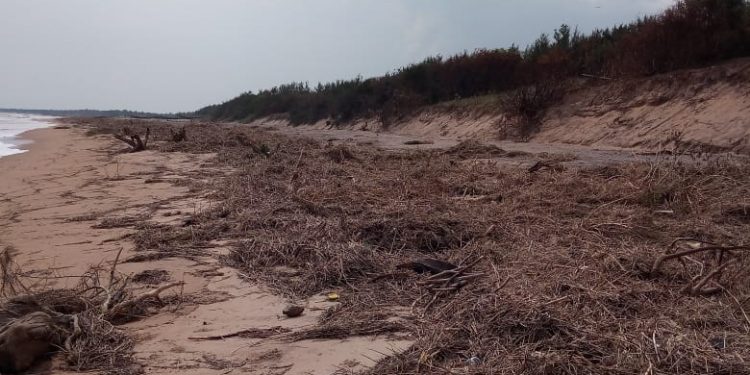Ganjam: The much awaited mating of Olive Ridley turtles at Rushikulya mouth, which takes place towards November end, is mired in uncertainties as high tidal waves crossing the shores have led to erosion of the sea beach.
Reports claimed Olive Ridley turtles cross thousands of miles in the sea to reach Rushikulya mouth where they mate before laying eggs.
The mass nesting of turtles will begin in favourable weather of December and with the southward blowing of winds. However, the high tidal waves crossing the shores led to erosion of the sea beach from Gokharkuda to Prayagi and to Aryapalli in south, environmentalist Rabindra Kumar Sahu said.
This has sparked concern among environmentalists as they feared the eroded sea beach might prove a dampener for the sea turtles mating on the beach. They alleged that the beach from Rushikulya to Bateshwar temple shrine is on the verge of extinction due to high tidal waves.
The high tidal waves not only wash away the beach they also bring in their wake lots of waste onto the shores. They apprehend that if the situation persists, then the mass nesting of the sea turtles might get affected as they will not be able to climb up the shore before their mating and mass nesting.
When contacted, divisional forest officer Ashis Kumar Behera said attempts are being made to clear the wastes on the beach that are carried ashore during high tidal waves. This apart, beach patrolling has been intensified while Khallikote and Rambha forest officials were asked to remain alert.
The sea turtles come here from as far as Costarica, Srilanka and Japan for mating and mass nesting.
PNN






































